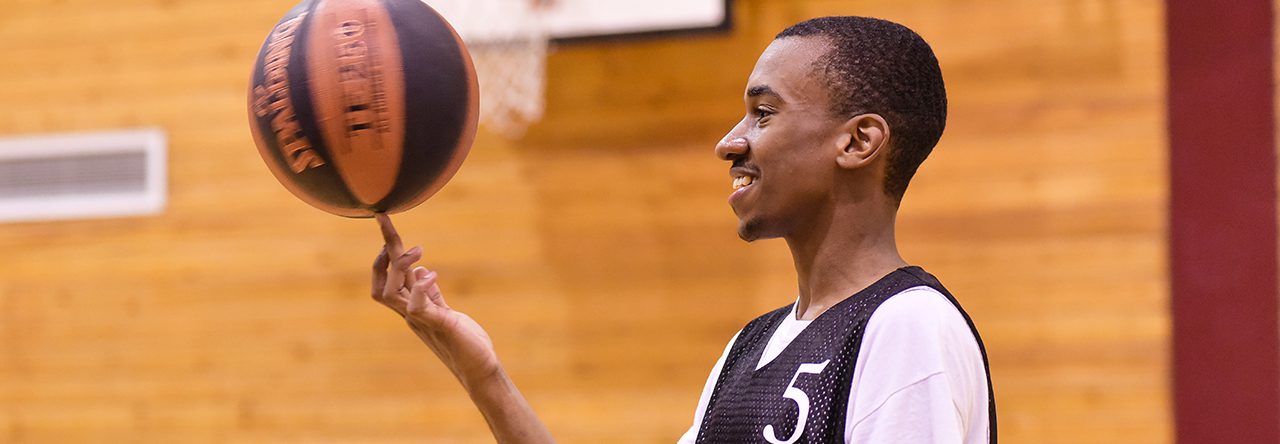By Will Clarke
Get your mindset right
Success in anything starts with how you think about things, and as I found out with A-Levels, having the right approach in your mind is key to achieving what you want.
It’s important to outline what you are trying to achieve before you even attend that first class. For me, the minimum was to achieve the grades I needed to get into university. But before you decide what you want, I think it’s important to have an optimistic view. If you are thinking negative, and targeting the lowest grades, then inevitably your energy and outcome will be negative. Where your focus goes, your energy will flow.
So for me, when there was a particularly essay I didn’t want to write, I used to block out all the ‘I don’t want to do this’ talk, and just see it as an opportunity to succeed and achieve my goal, rather than an obligation.
Understand the specification
Each subject you are studying should have a ‘specification’ which in essence outlines what you need to know for your exam. Obviously the teacher is meant to teach you all you need to know, but I found that having the specification on me when I was revising was really helpful because often there is information in textbooks that you just don’t need to know and a quick glance at the specification will inform you of what you do and don’t need to know.
Furthermore, they often give hints about the exam by sometimes stating that only a small amount of knowledge is needed on a particular topic which helped me tailor what I need to revise.
Know the course
Obvious though it may sound, but actually knowing the whole course is a huge benefit. The reason I say this, from my experience and from talking to friends, is that when there is a choice of questions to answer and you only know about topic A rather than topics A, B and C, you are limiting your chances of doing well and often suffer. It’s true that if you master one topic and its guaranteed that a question will come up on it, you can do brilliant, but from my experience not only is this stressful (i.e. the examiner decides to be annoying and not put the question in or the question is really difficult) but also extremely risky. Thus, I strongly recommend that you know all the topics.
Doing this will allow you to pick and choose what question to answer in the exam rather than being forced to do a particular question. And yes it’s a great feeling when you can look at the questions and think to yourself ‘I can answer any of these and do well’.
Do the thing you keep putting off/find most difficult first
We’ve all come to that stage, whether at home or in the library, when we have everything set up to revise, and we ask ourselves ‘what do I revise?’. For a long time, my approach to this question was to revise the area I found most interesting or liked the most. Yet how I regretted that when the exam paper came back with me scoring maximum marks on one question and then for the rest of the paper getting the bare minimum.
This made me realise that the concept which I found most difficult, was what I must learn and revise first. For me this was ‘quantitative easing’ and after I prioritised it at the top of my revision, I began understanding it more, answered questions confidently and scored highly. Additionally, when you understand the topic you find most difficult, you will be much more confident about the course as you have learnt the hardest part.
Over the course of the school year, there will be times when you don’t do well or where you put everything in and it still doesn’t come out right. It happened to me several times over. But each time it happened, I just looked at my end goal and kept going, and it worked.
Start early
I’m sure you have heard this tip several times over, which if anything says that there is some truth behind it. In my opinion, there is no doubt about it, that the main reason why I knew all the course and was confident going into exams was because I started early.
When you have being going over the same things for nearly 5/6 months, the answers and correct way of doing things just come naturally to you. Obviously at the start of the course, you have learnt little content so there isn’t much to revise, but I found by the time I got to December there was enough content learnt to be revising fully. Yes you do have to revisit topics when you revise early, perhaps several times over, but this is good, as you have already learnt it and created notes, meaning that you just need to remind yourself of the content instead of having to learn from scratch.
Moreover, I found that teachers don’t necessarily finish teaching the course until 1 or 2 weeks before the exam. So, if you have revised early, it gives you a chance to focus more on the content that’s new rather than fretting about the fact you are going to have to revise both old and new knowledge.
Revise in short periods
When was the last time you spent 3 full hours, without no break concentrating fully on one task? The closest I can think of is perhaps when watching a long film, but even then your mind begins to wander. So why is it that people think they can revise in one lump sum of 2/3 hours? It’s not possible to work that long on one topic without losing concentration.
Think about it, footballers play for 45 minutes and then have a 15 minute break, and authors don’t write a whole book in a day, they might do a couple pages a day. I revised in either 40 minute periods followed by 10 minute breaks, or 20 minute periods followed by 5 minute breaks. It’s much more efficient to revise in this manner and it felt more effective in helping me remember content.
Find your rhythm and what suits you
One of the key parts to my success at A-Levels was I figured out what worked best for me. And by that, I mean things like where I worked best, what time of day I revised best in, what subjects to revise first, who to revise with etc. These things may sound a bit ridiculous, but when I found out what worked best I soon became better at my subjects.
For example, when I started out revising with friends in the library, I realised that my revision notes weren’t to a good standard or I couldn’t remember what I learnt, as I was talking more to my friends. To rectify this, I completed all revision which required reading and writing at home, and left revision where I would test myself to do with my friends.
Another example, is that I would practice doing exam papers at the same time of day in the same conditions as they would be for actual subject exam so that when it came to the real thing my brain had been tested on the same knowledge at the same time of day in the same conditions several times over. Although the questions were new, the process wasn’t, which eliminated any nerves and made me more confident.
Test yourself
Testing myself over so many months was crucial to my success as it allowed knowledge to be fully built-in. This was essential for someone like me, who can easily forget stuff and when you want to know all the course to get the best grades.
There are various ways you can do this. I think the best way I did this was writing cue cards with questions on one side and the answers on the other, and taking time to test myself once a day. Be careful not to write loads of content on these cards as then it can be impossible to remember or even complete. Testing with friends in a similar manner is also effective, especially with things like key terms. Everyone has their preferences in doing these things, but I think the key is to take time to test yourself each day.
I used to make the most of the ‘dead time’ of my day by testing myself. For example, in my 20 minute walk to college I used to listen and answer questions I recorded myself asking on my phone, or just try and remember pros and cons of a topic.
Past papers
Effectively this tip is the same as the last, but completing past exam papers is an essential part of doing well at A-Levels. Although I didn’t want to do them, all the past questions I completed really helped me to know the correct style of writing answers, and understanding what sort of questions typically come up in exams.
I made the effort of printing off past papers as far as 2004 all the way to the most recent paper. Even though it took some hunting around on the internet, doing so enabled me to see all the different questions that have come up over the years, and allowed me to prepare for any possibility. I soon realised that examiners often use the same questions, but just change the wording of the question to make it seem different which I think helped me understand what questions normally come up and what the question is actually asking for. I think the key is to practice questions, as no matter how many revision notes and posters you write (which is good), you need to actually answer questions to get ready for the real thing.
Don’t give up
This tip is more general but something I just thought I’d end on. Over the course of the school year, there will be times when you don’t do well or where you put everything in and it still doesn’t come out right. It happened to me several times over. But each time it happened, I just looked at my end goal and kept going, and it worked.
It’s tough but it’s worth it.









